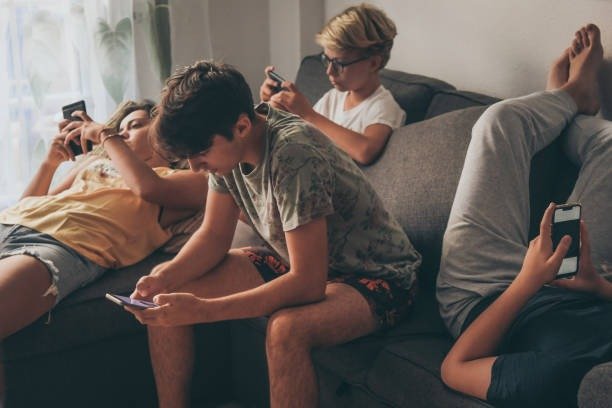10 Ways to Help Children Embrace and Learn from Mistakes

Source: https://lawleypublishing.com/
Children and adults often lie or make excuses to avoid acknowledging wrongdoings, a behavior likely rooted in their upbringing. Taking responsibility can be difficult for kids due to fear of trouble or embarrassment. Child development specialists emphasize the importance of helping young minds learn to own their mistakes, as the pressure to be “good” can hinder this crucial skill.
Here are ten things you can do to help your children cope with and even learn from their mistakes:
1. Admit when you have made a mistake: Since everyone makes some blunder every day, you should have plenty of opportunities to do this. When you realize what you have done, acknowledge it, especially if it directly affects your child. Apologizing for something that you did wrong is perfectly acceptable and lets your child know you value and respect them. Own it! It will be good for everyone involved.
2. Watch your reaction to your child’s mistake: The author reflects on a parenting experience from nearly 20 years ago, highlighting the importance of maintaining perspective when addressing children’s mistakes. After his daughter entered the room with messy hair from a spray bottle, he initially reacted with an accusatory tone, causing her to feel upset. Recognizing his mistake, he quickly apologized and reassured her, then spent the rest of the evening engaging positively with her. This experience emphasizes the need for parents to model calmness and perspective to help children learn to handle mistakes.
3. Hold them accountable but keep it all in perspective: Sometimes, there are consequences that naturally follow certain actions. A parent doesn’t need to shame their child for belching in Grandma’s face to explain she needs to say “Excuse me” when she burps. Show kindness and a fair bit of patience when clarifying that sometimes there are unpleasant things we must experience when a mistake is made. Keep in mind the importance of being consistent and predictable when consequences happen.
4. Teach them how to apologize appropriately: A simple and sincere apology goes a long way in repairing a situation. This may be a lesson you are teaching your children by example (see point 1 again), but it should be taught with some awareness and intent. A good apology shows recognition of the mistake as well as concern about the feelings and well-being of the other person. Sometimes children will apologize because they feel bad, and while this is a good start, they need to develop the ability to care more about how the other person feels and focus on helping them to feel better.
5. Be realistic about what went wrong: Consider your child’s age, developmental level, and past experiences. I remember hearing about a little girl whose grandmother gave her a beautiful snow globe from Disneyland. Her parents put it on a higher shelf in her bedroom so she could look at it. One night her parents heard a crash, and when they came into her bedroom, they saw their daughter had climbed up to the snow globe in hopes of taking it off the shelf to admire it. She had knocked it off the shelf, and it was broken in a puddle on the floor. The little girl looked at her parents and said, “It’s okay,” as this was what her parents had said when she made other mistakes. The fact was the snow globe was not okay. It was broken beyond repair. The lesson those parents taught their daughter that night was this: because she had climbed on a bookshelf she should have avoided, something she found very beautiful was broken. It would have been better for her to ask for help. In a situation like that, the lesson is the consequence, and that was well enough.
6. Teach your children to look for the reasons the mistake happened: Take a step back from the mess that has been created and look at what was going on right before it all hit the fan. When a child can answer the question, “How did we get in this pickle?” it gives him an opportunity to learn how to avoid repeating the same mistake. After that discussion, be prepared; he will likely repeat the same mistake. That’s the way we human beings are. It takes a long time to learn new things. Be patient as you continue to teach him.
7. Show that lessons can be learned when a mistake is made: Once we learn from mistakes, we seldom repeat them. Learning something can lessen the sting of having done it wrong in the first place. After trying for more than a year to invent the lightbulb, Thomas Edison was reported to have said, “I didn’t fail. I just found 2,000 ways not to make a lightbulb; I only needed to find one way to make it work.” Had he not learned from his failed attempts and simply given up, how long would it have taken someone else to figure it out? Edison did not continue doing the same thing repeatedly; rather, he adapted and learned from his failures. Show a sense of curiosity about what was learned from the mistakes your child makes and praise him for learning a valuable lesson.
8. Teach your child how to cope with frustration: Knowing how to keep cool in challenging situations is a life skill that will help her for the rest of her life. I remember watching a toddler bump his head on a table and his parents laughing when he started crying and kicking the table as punishment for hurting him. I don’t think that moment taught their son a good lesson. It would have been wiser to comfort and console him through his pain. Teaching a child how to put words to her frustration and express it without attacking those around her will help to keep a simple mistake in perspective.
9. Avoid the Social Media trap: Just because you saw it online doesn’t mean it’s good information. (The irony does not escape me.) Social Media is filled with people who give advice about how to cope with challenging times. Sometimes, though, a picture that is too rosy can be painted. Don’t tell your daughter, “Every mistake you make is progress.” Teach her to think more critically and say, “Every mistake you correct is progress.” Rather than saying, “Every time you make a mistake, you’re one step closer to your goal,” emphasize making progress by saying, “Every time you learn from a mistake, you’re one step closer to your goal.” Mistakes can foster growth, and while we certainly want to avoid them, we don’t have to fear them.
10. Acknowledge your child for admitting or fixing their mistakes: What we give our attention to will be repeated. The most basic behavior modification technique is to praise and reward the behavior we want to see happen again. This is actually how animals are trained; they are given a treat when they perform the desired task. When we praise our child for doing something right, he is more likely to do it again. On the other hand, if the only time we notice what he has done is when we are telling him what he has done wrong, he may seek our attention that way again.
Read More: https://childreninfobank.com/safebank/6-ways-to-teach-kids-how-to-accept-mistakes/
Image Source:https://lawleypublishing.com/





